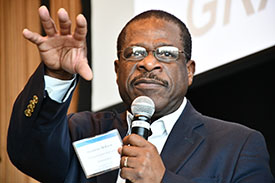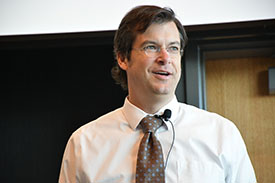
- 4-H and Youth Development News
- Academic Affairs News
- Accounting and Finance News
- Administration and Instructional Services News
- Admissions News
- Agribusiness, Applied Economics and Agriscience Education News
- Agricultural and Natural Resources News
- All News
- Alumni News
- Animal Sciences News
- Applied Engineering Technology News
- Athletics News
- Biology News
- Built Environment News
- Business and Finance News
- Business Education News
- CAES News
- CAHSS News
- Chancellor's Speaker Series
- Chancellors Town Hall Series
- Chemical, Biological, and Bio Engineering News
- Chemistry News
- Civil, Architectural and Environmental Engineering News
- COAACH News
- COE News
- COED News
- College News
- Community and Rural Development News
- Computational Science and Engineering News
- Computer Science News
- Computer Systems Technology News
- Cooperative Extension News
- COST News
- Counseling News
- Criminal Justice News
- Deese College News
- Economics News
- Educator Preparation News
- Electrical and Computer Engineering News
- Employees News
- Energy and Environmental Systems News
- English Department News
- Faculty News
- Family and Consumer Sciences News
- Graphic Design Technology News
- Hairston College News
- Headlines News
- History & Political Science News
- Honors College News
- Human Resources News
- Industrial and Systems Engineering News
- Information Technology Services News
- Innovation Station News
- Journalism & Mass Communication
- JSNN News
- Kinesiology News
- Leadership Studies and Adult Education News
- Liberal Studies News
- Library News
- Magazine News
- Management News
- Marketing News
- Mathematics News
- Mechanical Engineering News
- Media Spotlight News
- Natural Resources and Environmental Design News
- News Categories
- Nursing News
- Physics News
- Psychology News
- Research News
- Social Work News
- Staff News
- Strategic Partnerships and Economic Development News
- Student Affairs News
- Students News
- The Graduate College News
- Transportation & Supply Chain
- University Advancement News
- Visual & Performing Arts News
N.C. A&T Centers of Excellence Host Grant Proposal Writing Workshop
EAST GREENSBORO, N.C. (Sept. 30, 2019) – Approximately 100 faculty members at North Carolina Agricultural and Technical State University dedicated a full day to gain further insight on how to write grant proposals that will persuade federal agencies to fund their respective research projects.
 The workshop was designed to sharpen participants’ skills and provide them with essential tools, including an interactive workbook that offers step-by-step guidance through the proposal process.
The workshop was designed to sharpen participants’ skills and provide them with essential tools, including an interactive workbook that offers step-by-step guidance through the proposal process.
“We want to be known as a leading university for research innovation and productivity,” said Thaddeus McEwen, Ph.D., interim director of the Center of Excellence in Entrepreneurship and Innovation. “We must continue to support faculty members and empower them to take charge and embrace this responsibility.”
The workshop, co-sponsored by the Centers of Excellence in Entrepreneurship and Innovation, Cybersecurity, and Product Design and Advanced Manufacturing, was presented by Grant Writers’ Seminars and Workshops consultant John Robertson, Ph.D.
 Robertson has expertise as a grant review panelist and has received competitive funding from both the National Institutes of Health (NIH) and other non-federal sources. He primarily focused the presentation on securing funding from the National Science Foundation (NSF) due to participants’ research interests.
Robertson has expertise as a grant review panelist and has received competitive funding from both the National Institutes of Health (NIH) and other non-federal sources. He primarily focused the presentation on securing funding from the National Science Foundation (NSF) due to participants’ research interests.
“The annual budget for the National Science Foundation is approximately $9 billion,” said Robertson. “And on average, the funding agency accepts 10 to 15 percent of grant proposals.”
He encouraged attendees to be relentless, persistent, and prioritize and schedule the necessary time it takes to write winning proposals.
The response for registrations was overwhelming, which indicates the desire of N.C. A&T faculty to remain ahead of the curve in securing funding for innovative research.



